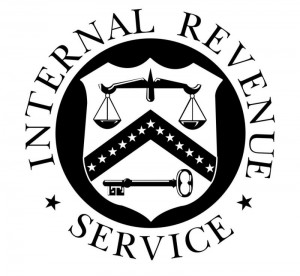
Binance’s founder and CEO, Changpeng Zhao, a Canadian national, has pleaded guilty to violating anti-money laundering (AML) rules and has resigned as CEO of Binance, officials announced Tuesday.
This guilty plea is part of coordinated resolutions with the Department of the Treasury’s Financial Crimes Enforcement Network (FinCEN), the Office of Foreign Assets Control (OFAC), and the U.S. Commodity Futures Trading Commission (CFTC)
As part of the settlement, Binance will pay fines totaling $4.3 billion, and Zhao will pay a $50 million fine. The company will continue to operate in the U.S. under tighter supervision. Richard Teng, currently head of regional markets at Binance, is likely to take over as the new CEO.

According to court documents, Binance admitted to prioritizing growth and profits over compliance with U.S. law. Binance launched in 2017 and focused on attracting high-volume customers, including U.S.-based customers.
Despite this announcement, Binance took steps to maintain a substantial number of U.S. customers, particularly valuable “VIP” customers who were responsible for a large portion of Binance’s trading volume and revenue.
“When you put growth above compliance, you end up in hot water,” said Chief Jim Lee of the IRS Criminal Investigation (IRS-CI). “Our team of investigators uncovered that Binance disregarded anti-money laundering Know Your Customer laws, failed to register as a money transmitter, and willfully violated U.S. sanctions tied to the International Emergency Economic Powers Act. When you do so, your business becomes a playground for bad actors. Hundreds of millions of dollars in illicit proceeds from ransomware variants, darknet transactions, and various internet-related scams moved through Binance in an attempt to evade detection by law enforcement.”
To retain these customers, Binance executives, including Zhao, implemented the following strategies:
- Contacting VIP customers: Binance executives contacted high-value U.S. customers to encourage them to register a new account for an offshore entity and transfer their holdings to that account.
- Encouraging U.S. customers: Binance employees called U.S. VIPs to persuade them to provide information suggesting they were not in the United States.
- Subverting controls: While publicly claiming that U.S. customers were restricted from transacting on Binance.com, Zhao and Binance secretly allowed high-value U.S. customers to continue trading on the Binance.com platform.
- Launching Binance.US: Binance launched a separate U.S. exchange, Binance.US, which implemented KYC requirements lacking in the primary exchange.
By June 2019, Binance.US had attracted nearly $900 million in transactions between U.S. and Iranian users.

They facilitated millions of dollars in transactions between U.S. users and users in Syria and the Russian-occupied Ukrainian regions of Crimea, Donetsk, and Luhansk.
Binance’s compliance personnel knew the company’s anti-money laundering procedures were inadequate and would attract criminals to the platform.
 Binance began requiring all users to provide KYC information in August 2021 but allowed users without KYC to continue trading on the exchange until May 2022.
Binance began requiring all users to provide KYC information in August 2021 but allowed users without KYC to continue trading on the exchange until May 2022. As Binance’s internal communications showed, Binance’s compliance employees recognized that Binance did not have protocols to flag or report transactions for money laundering risks, which employees recognized would attract criminals to the exchange.
As one compliance employee wrote, “we need a banner ‘is washing drug money too hard these days – come to binance we got cake for you.’”
 Illicit actors used Binance’s exchange in various ways, partly due to the company’s inability to implement a successful anti-money laundering program.
Illicit actors used Binance’s exchange in various ways, partly due to the company’s inability to implement a successful anti-money laundering program.
These methods included using the exchange to conduct transactions for services that concealed the ownership and source of cryptocurrency, moving proceeds from exchange hacks, darknet market.
Binance also knew that U.S. sanctions laws prohibited U.S. persons, including its U.S. customers, from trading with its customers subject to U.S. sanctions, including customers in comprehensively sanctioned jurisdictions, such as Iran.
Nonetheless, Binance did not implement controls that would prevent U.S. users from trading with users in Iran.
 As a result of this intentional failure, between January 2018 and May 2022, Binance willfully caused over $898 million in trades between U.S. users and users ordinarily resident in Iran.
As a result of this intentional failure, between January 2018 and May 2022, Binance willfully caused over $898 million in trades between U.S. users and users ordinarily resident in Iran.
As part of the plea agreement, Binance has agreed to forfeit $2.5 billion and to pay a criminal fine of $1.8 billion for a total financial penalty of $4.3 billion.
Binance has also agreed to retain an independent compliance monitor for three years and remediate and enhance its anti-money laundering and sanctions compliance programs.
Binance has also reached agreements with the CFTC, FinCEN, and OFAC, and the Department will credit approximately $1.8 billion toward those resolutions.
The Department reached its resolution with Binance based on a number of factors, including the nature, seriousness, and pervasiveness of the offense, as a result of which Binance processed billions of dollars of cryptocurrency transactions for U.S. persons and caused U.S. customers to engage in transactions in violation of U.S. sanctions.
Binance did not make a timely and voluntary disclosure of wrongdoing. Still, it received partial credit for cooperating with the Department’s investigation and has taken steps to remediate its compliance program.
Binance did not receive full credit for its cooperation because it delayed producing relevant evidence, including recorded meetings in which Binance executives discussed U.S. legal requirements.
Accordingly, the total criminal penalty reflects a 20% reduction below the acceptable range of the applicable U.S. sentencing guidelines.
IRS-CI is investigating the case.


